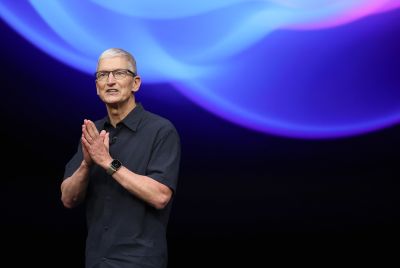New Study Sounds Alarm on Proliferation of Pro-Smoking Apps on Apple, Google App Stores
Pro-smoking applications have proliferated on mobile apps, which a new report said were actually masquerading as game or entertainment apps that in effect were being employed as subtle promotion of tobacco products.
Some of the apps, according to lead researcher Nasser Dhim of the University of Sydney, even claim of aiding in kicking out the habit of smoking, which health experts said lead to serious and deadly medical conditions like lung cancer and heart ailments.
A number of the mobile apps in fact were found to be marketing cigarette brands such as Philip Morris and Marlboro, which effectively undercut the strict regulatory measures of governments that prohibit ads supportive of tobacco products, Mr Dhim said in the report ran on Tuesday by the medical journal Tobacco Control.
In Australia, the plain packaging law has started rolling out and local retailers, as required by the laws, have replaced traditionally-packed cigarette packs with drab-packed cigarette boxes with graphic health warnings that the government said were designed to discourage smoking.
The Gillard government is gunning to reduce Aussie smokers by up to 15 per cent over the next few years to curb the incidence of deaths and diseases attributed to tobacco products, also costing the government millions of dollars in health care expenditures.
It appears, however, that tobacco players came up with an effective circumvent in the form of presence in the mobile devices market, which experts said could easily reach tens of millions, teenagers especially, around the world.
As of February 2012, the Tobacco Control report has detected a total 107 applications both readily available in Apple's App Store and Google's Play Store and all of these free softwares can be considered as tobacco-friendly, Mr Dhim said.
Admittedly, the functions and graphics that were deployed with the apps were attractive enough that in Google alone, 11 million people have been lured so far to download the cool apps, numbering to 42 in the Android platform.
Most susceptible to this kind of marketing ploy are the youngsters, who serve as fertile markets for tobacco firms increasingly running out of room to offer their products, Mr Dhim said.
"Pro-smoking content, including explicit cigarette brand images, is promoted in smartphone apps which are reaching millions of users, including teenagers and children . . . and its intentional rather than accidental," Agence France Presse (AFP) reported the new study as saying.
Clearly, by bringing into the world of mobile devices through carefully crafted pro-smoking apps, the deadly habit has acquired some form of glamour, that in turn, serves as a powerful allure for would-be smokers, the young ones especially, Mr Dhim said.
The report asserted too that these powerful apps are contravening "the World Health Organisation Framework Convention on Tobacco Control, which bans advertising and promoting tobacco products in all media."
"App stores need to explore ways of regulating (these contents)," the Tobacco Control report said.



















